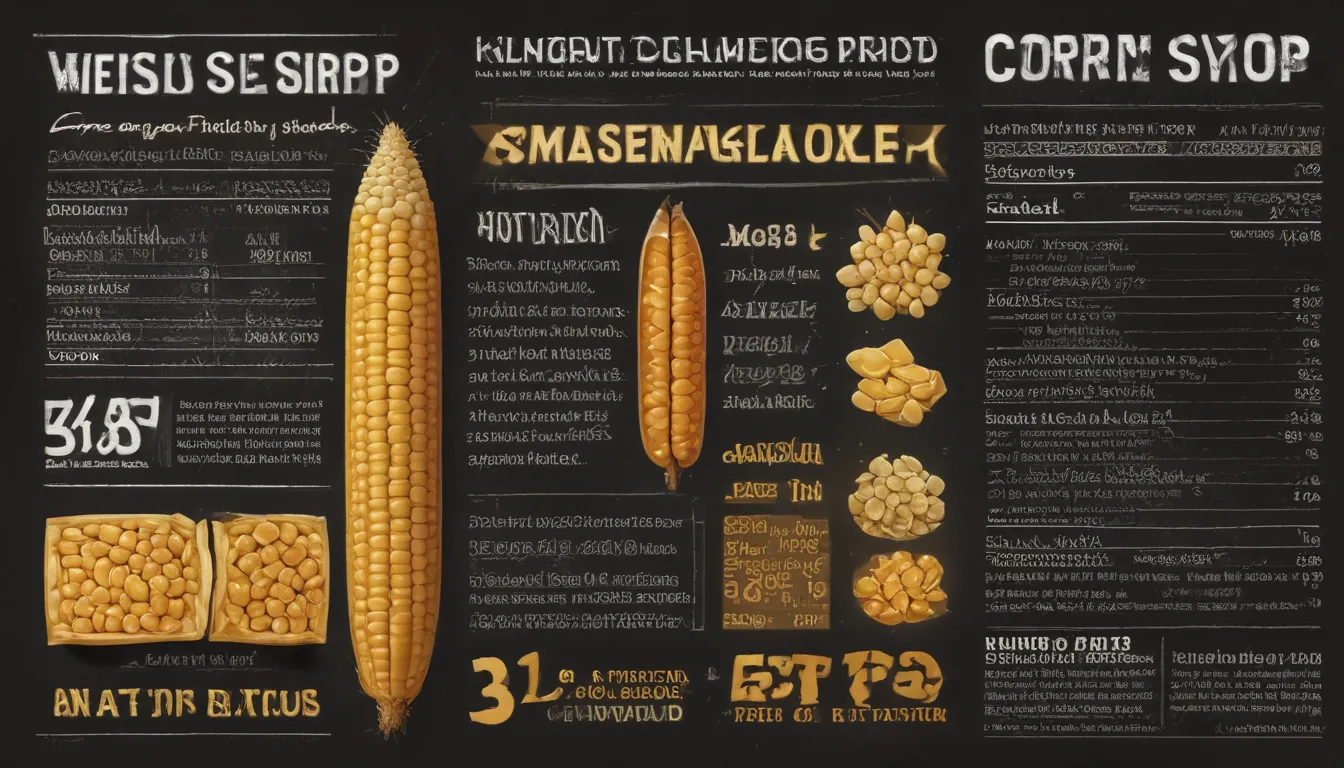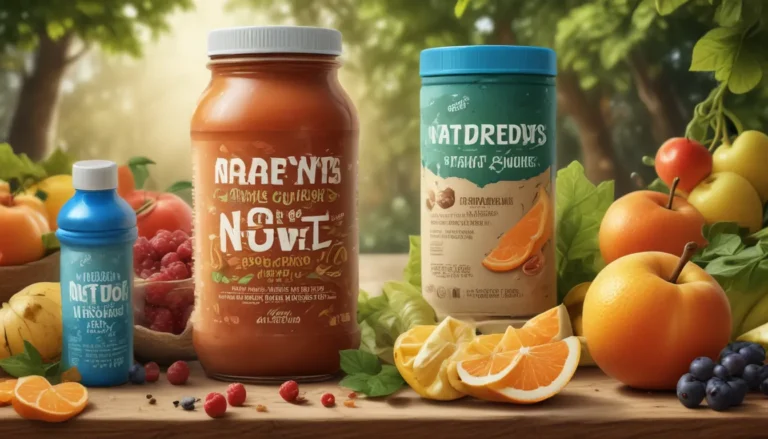The pictures in our articles might not always show exactly what the text is talking about. We use these images to make the article more interesting and eye-catching. They are there to add to the text, but not to replace it or show every detail.
Are you curious about the nutritional aspects of corn syrup solids and how they can impact your health? Corn syrup solids are a common ingredient found in various processed foods and beverages, known for their sweet taste and versatile uses. In this article, we will delve into the nutrition facts of corn syrup solids, providing you with valuable information to make informed dietary choices. From understanding the caloric content to the potential health risks associated with excessive consumption, we will explore all aspects of this widely used food ingredient.
What Are Corn Syrup Solids?
Corn syrup solids are a concentrated form of corn syrup, derived from corn starch through a process that removes the water content, leaving behind a powdered form. This concentrated powder retains the sweet properties of corn syrup, making it a popular choice as a sweetener and thickening agent in processed foods and beverages. Due to its high sugar content and ability to dissolve in liquids, corn syrup solids are widely used in various food products to enhance flavor and texture.
Nutrition Facts of Corn Syrup Solids
Carbohydrates and Calories
Corn syrup solids contain calories and carbohydrates, providing a source of energy for the body. However, it is essential to consume them in moderation, especially if you are following a low-calorie or low-carbohydrate diet. Excessive consumption of corn syrup solids can contribute to weight gain, as they are high in sugar and calories.
Glycemic Index
Corn syrup solids have a high glycemic index, meaning they can cause a rapid increase in blood sugar levels when consumed. This can be a concern for individuals with diabetes or those trying to manage their blood sugar levels. It is important to be mindful of the glycemic index of foods containing corn syrup solids and their potential impact on blood sugar levels.
Fat and Protein Content
Corn syrup solids do not contain significant amounts of fat or protein. They consist mainly of carbohydrates, which provide energy for the body. It is important to consume a balanced diet that includes other sources of essential nutrients such as fat and protein to meet your nutritional needs.
Genetically Modified Ingredients
Some corn syrup solids may be derived from genetically modified (GM) corn. If you have concerns about GM products, look for organic or non-GMO options when purchasing foods containing corn syrup solids. Being aware of the source of ingredients in your food can help you make more informed choices about what you consume.
Health Considerations and Tips
Potential Health Risks
Excessive consumption of corn syrup solids can contribute to weight gain, obesity, and health issues such as diabetes and tooth decay. It is important to monitor your overall sugar intake and make healthier food choices to reduce the risk of these health issues. Reading food labels carefully and being mindful of added sugars in products can help you make healthier choices.
Substitutes and Alternatives
If you are looking to reduce your consumption of corn syrup solids, you can substitute them with natural sweeteners like honey, maple syrup, or agave nectar. These alternatives can provide sweetness and flavor to your food products while reducing your intake of processed sugars. Consider experimenting with different sweeteners to find options that suit your taste preferences and dietary needs.
Reading Food Labels
When shopping for food products, take the time to read food labels carefully to identify if a product contains corn syrup solids. Being aware of the ingredients in the foods you consume can help you make more informed choices about your diet and nutrition. Look for products that use natural sweeteners and whole, unprocessed ingredients for a healthier dietary option.
Conclusion
Understanding the nutrition facts of corn syrup solids is essential for making informed dietary choices and prioritizing your health and wellbeing. While corn syrup solids can provide energy and sweetness to food products, it is important to consume them in moderation to avoid potential health risks. By being mindful of your sugar intake, opting for whole foods, and exploring alternative sweeteners, you can make healthier choices for your diet and overall health.
FAQs About Corn Syrup Solids
-
Are corn syrup solids the same as corn syrup?
No, corn syrup solids are the dried form of corn syrup, resulting from the removal of water content to create a concentrated powder. -
Are corn syrup solids bad for you?
Excessive consumption of corn syrup solids can contribute to health issues such as weight gain, diabetes, and dental problems due to their high sugar content. -
Can I substitute corn syrup solids with other ingredients?
Yes, you can substitute corn syrup solids with natural sweeteners like honey, maple syrup, or agave nectar, considering the recipe and desired outcome. -
Are corn syrup solids suitable for people with diabetes?
People with diabetes should consume corn syrup solids in moderation due to their high sugar content. Consult a healthcare professional for specific guidance. -
Where can I find corn syrup solids in everyday food products?
Corn syrup solids are commonly used in processed foods, baked goods, and beverages as a sweetening agent. Reading food labels can help identify their presence. -
Are there any health benefits to consuming corn syrup solids?
Corn syrup solids do not provide significant nutritional benefits but mainly contribute to flavor, texture, and sweetness in food products.
In conclusion, being informed about the nutritional aspects of corn syrup solids can help you make healthier dietary choices and prioritize your overall health and wellbeing. By understanding the potential health risks and exploring alternative sweeteners, you can create a balanced and nutritious diet that supports your individual needs. Remember to read food labels, consume in moderation, and consult with healthcare professionals for personalized guidance on your diet.






